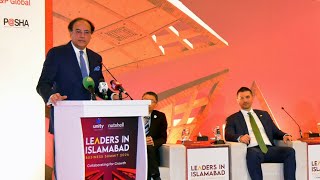ISLAMABAD: The Supreme Court observed that the amendments in the National Accountability Ordinance, 1999, will not only open the door but will further strengthen the systematic way of corruption.
A three-judge bench, headed by Chief Justice Umar Ata Bandial, and comprising Justice Ijazul Ahsan and Justice Syed Mansoor Ali Shah on Wednesday heard the constitutional petition of Pakistan Tehreek-e-Insaf (PTI) Chairman Imran Khan against the amendments in the NAO, 1999.
At the end of the hearing, the bench again asked Khawaja Haris, the counsel of the PTI chairman, to furnish the main points, which establish that the amendments are against fundamental rights.
During the proceeding, Justice Ijaz reacting to the arguments of Haris, said you mean to say that the colourable exercise of the executive will not only strengthen the way of corruption but will also clear the way to benefit those whose cases were pending in the Court by taking certain offences from the NAB ambit. “It (the amendments) will open the door and further strengthen the systematic way of corruption,” he added.
Haris, earlier blasted the government by referring to various sections of the NAO, which were amended vide the National Accountability (Second Amendment) Act, 2022. He argued that the amendments have rendered the anti-graft law ineffective and the changes were made for the benefit of a certain class of people. He said Pakistan is a signatory to the United Nations Convention against Corruption and has committed to take measures to curb the menace of corruption in the country.
He argued that the present government has made changes in Section 9(a) (vi) of the NAO and put an extra burden on the prosecution (the NAB) not only to establish misuse of authority but also that the holder of the public has gained monitory benefit from the third party (person in whose favour the act of misuse of authority has been rendered).
Justice Bandial asked the counsel: don’t you think it is right that if a person has not obtained any advantage and benefit then he should not be put to trial before verifying the facts? He said in the case of LNG, bought from Qatar, on assumption some persons were accused, adding there are circumstances, which are not in one’s control; therefore, people can’t be sentenced on anticipation, but it needs facts. He said several bureaucrats had suffered and were jailed, but later they were acquitted (as the NAB failed to establish its cases).
Haris argued that some offences have been taken out of the NAB’s purview. Justice Mansoor inquired where those cases ended after the amendments in the NAO or transferred to other forums and be tried under the General Laws. He said the general laws may apply, even though they are public office holders.
The counsel pleaded that they (the PML-N government) have also taken out the decisions of Federal or Provincial Cabinet, their Committees or Sub-Committees Council of Common Interests (CCI), National Economic Council (NEC), National Finance Commission (NFC), Executive Committee of the National Economic Council (ECNEC), Central Development Working Party (CDWP), Provincial Development Working Party (PDWP), Departmental Development Working Party (DDWP), and the State Bank of Pakistan from the ambit of the NAB.
Justice Bandial said these are the institutions where the collective, and not individual, decisions are taken. He questioned if a committee or the cabinet take any decision, which later proved wrong, then would the whole cabinet be responsible?
Haris replied that if the cabinet takes a decision, which is not good in the interest of the country, then the whole cabinet could be blamed. Justice Mansoor questioned suppose if this law (amendments in the NAO) was enacted in 1999 then had he challenged it, and what would be his grounds?
The PTI counsel replied, “Yes”, adding my challenge had been that this is made to benefit a specific class. He argued that when billions of rupees have been spent on the inquiry and investigation, then why a lot of effort and money spent be wasted. He said he had seen recently that the Accountability Courts have returned hundreds of cases. He said it should be the mandate of the government to prevent corruption and there are also a number of Supreme Court’s judgments in this regard. The case was adjourned until next Tuesday (October 18).
Copyright Business Recorder, 2022
























Comments
Comments are closed.